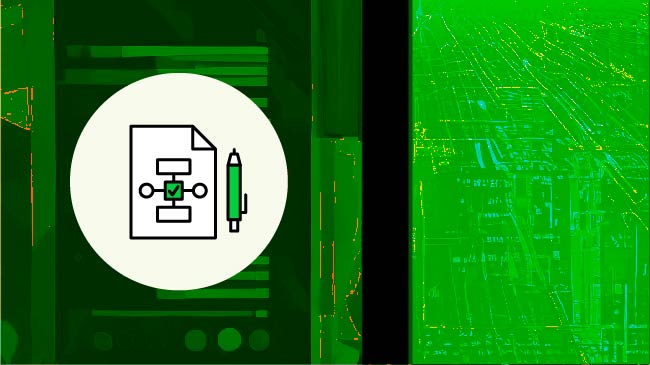To Close Skills Gap, IBM Z Embraces Gen Z
During a keynote panel at IBM Z Day, young mainframers reflected on their cross-generational working environments

Mainframers have long heard about the skills gap, but now they’re seeing the industry start respond to it. Recent graduates and adult career-changers are ever more present and prominent on the platform. This was evident during the recent IBM Z Day virtual event.
With more than 90 video sessions, participants could immerse themselves in everything that’s new, including the mainframe’s embrace of artificial intelligence (AI), the planning and practice of application modernization, and the latest advances in security. To learn more, check out this Z Day overview.
Meanwhile, considerable attention and discussion was devoted to the ongoing need to introduce newcomers to the mainframe. The keynote panel, “Creating a Successful Cross-Generational Team,” brought together four young professionals who shared their thoughts on the platform and working with their fellow mainframers.
Programs for New Technologists
Meredith Stowell, vice president, IBM Z Ecosystem, served as moderator. She opened the discussion by running through a sampling of IBM programs and initiatives that are connecting new professionals to the mainframe:
- IBM Z Career Connection goes to campuses worldwide to acquaint students with local employers who stake their businesses on the mainframe. More than 50 Career Connection events are happening this fall alone, Stowell noted.
- IBM Z Xplore is a no-cost platform that’s available to learners (age 16 or older), educators and employers. Whether you’re an experienced pro or you’re simply curious about the technology, you can earn digital badges as you get hands-on with the mainframe.
- The IBM Z Global Skills Accelerator program provides on-the-job training and mentoring for new hires or current employees. According to Stowell, more than 650 employees have completed or are taking the program, which involves nearly 150 employers in 20 countries.
She added that IBM is enhancing the mainframe itself with this evolving workforce in mind.
AI, Automation and Generational Differences
“When we talk IBM Z skills, it’s not just what we’re doing from a program perspective; it’s also what we’re doing behind the scenes from a technology perspective to make it easier to onboard to the platform, to simplify how we work with the platform,” Stowell said. That, she explained, includes automation, the use of generative AI assistants and bringing common tooling to the platform through open-source languages.
In addressing misconceptions about younger, Gen Z mainframers, Lella Violet Halloum, digital changemaker and global student outreach lead for IBM Z, said, “A lot of people think that young people—we’re just in it sometimes for like the quick gains or like the quick wins…We do approach problems differently because we’ve grown up as natives to this kind of fast-paced, digital-first world… But the thing that people do perceive correctly is that we want to have this chance to innovate and grow, and we want to do work that really does matter.”
Another panelist, Marianne Serra, IBM Z transformation strategy advisor, recently oversaw the formation of a new CIO Z team of 400-some globally based workers. She assessed the unique perspectives of younger mainframers.
“We keep wanting to learn—I think that’s a trait that is across generations as well…[but] I think the patience runs lower and lower with junior generations in the sense that we have to have a reward system,” she said. “It’s not necessarily money; it’s not necessarily promotions. It’s just, help me grow my role…show me that my role is appreciated, show me that there’s a path—that somebody is taking care of our career path.”
Shared Appreciation
Despite generational differences, mainframers of all ages and experience levels share one critical commonality: their appreciation for the platform, and technology in general.
Ruth Bonser, an infrastructure services manager for Australian multinational bank Westpac, offered this assessment: “I think the key is belonging. Each person on the team needs to feel that they belong and that they are making a meaningful, valued and appreciated contribution in their role. That’s not just a mainframe team, that’s a whole workplace culture that recognizes the value of everyone on the team, whether they’ve been there a day, a year, 30 years. It shouldn’t make a difference.”
Reminder: Mainframers are Human
“The way I would summarize it is don’t confuse mainframers and mainframes,” Serra added. “Mainframes will keep running whatever you throw at them. They’re designed that way. They’re fantastic machines in that sense. Mainframers are absolutely reliable and we are resilient, but we are also human.”
Caitlin Mooney, a software engineer with JPMorgan Chase, shared an anecdote about finding common goals and interests and the value these discoveries can bring to the work environment.
“Right now my manager has been helping me buy a car. I’m looking for a Suburu,” she said. “And the conversations we have about cars leads into different dialogues that really open up communication…but that always ends up leading into a technical conversation that’s very productive.”
Halloum added: “I think that the greatest realization to me is the realization that multi-generational peers like my colleagues were just as interested in learning from me as I was interested in learning from them. That made it so much easier…because ultimately it’s such a gift to have this chance to learn from each other.”
Note: IBM Z Day took place on October 1. Based on recent practices, the session replays should remain available for several weeks. IBM registration is required.